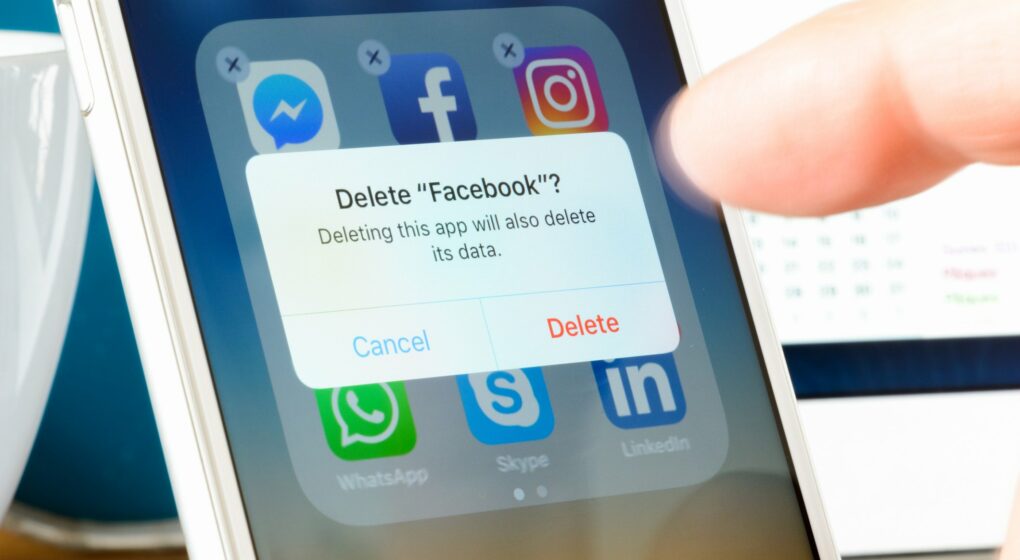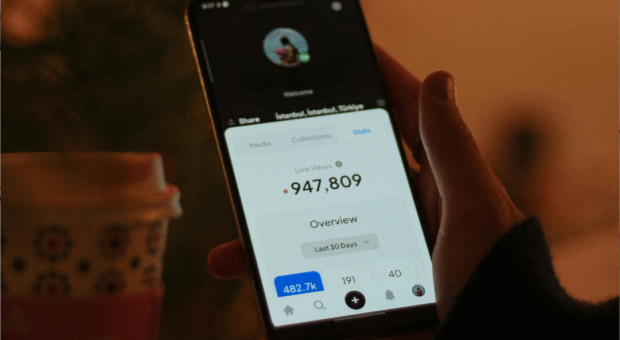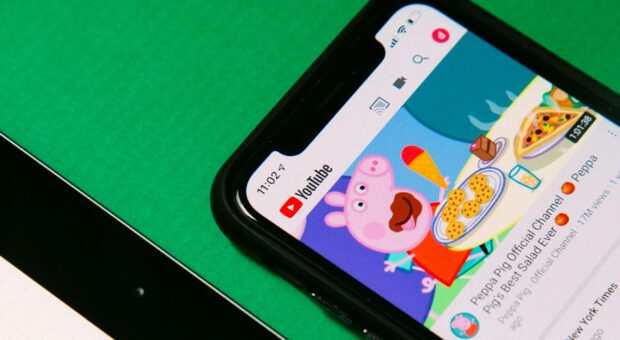
Categories:
By Suzanne Madore, Content Marketing Strategist
For most users, Facebook is just a casual place to share photos, converse with friends, and play hours of Candy Crush – I am guilty of all of these things on a personal level. So I get it why people are up in arms about the Cambridge Analytica data scandal. But I’m not ready to #DeleteFacebook quite yet.
For one, it makes me just a little bit suspicious that many of the people fueling the fire around the #DeleteFacebook campaign have some potentially ulterior motives. WhatsApp co-founder Brian Acton is one of the most notable. He sold WhatsApp to Facebook in 2014 for a cool 16 billion, then promptly left the company and started a new venture meant to directly compete with WhatsApp. The downfall of Facebook would represent a huge opportunity for his new company. So maybe he’s ready to delete Facebook because he’s worried about data – or maybe he just wants you to make space on your phone for his new venture.
Next, Elon Musk joined the band wagon and deleted the Facebook pages for Space X and Tesla. I’m sure this was meant to be a symbolic move, but err, Elon, #YoureDoingItWrong. Deleting business pages doesn’t do much to prevent data mining of people’s personal pages.
As “the Zuck” continues to get deservedly roasted for a lackluster response to a serious data problem – and prepares for what appears to be an upcoming testimony in front of Congress, I am holding out on deleting my account. In fact, I’m still a firm believer and active user of social media.
Why? Because you can delete your Facebook account six ways from Sunday and data miners will still find you on Twitter, or Snapchat, or shopping on Amazon, or checking out books from your local library. If you think anything you do online is truly private or not susceptible to a breach, think again.
That said, corporations have some serious work to do when it comes to protecting their users – Facebook especially, and I hope the backlash from this most recent breach will push them to up their game.
Encouragingly, Facebook has already made some major moves in this direction, including their announcement late last week that they will be shutting down Partner Categories (i.e. 3rd party data previously available to Facebook advertisers for ad targeting purposes) over the next 6 months. This may not be great news for advertisers, but it is a major move to protect users.
Contrary to popular belief, Facebook actually makes money by keeping their user’s personal information (identifiable user data) private. They let advertisers target groups of people with similar interests, but anything that would identify you personally is kept private – or else advertisers wouldn’t need Facebook to reach you.
So if you’re feeling uneasy about your publicly available data, but aren’t ready to say goodbye to Candy Crush and spying on your high school boyfriend, here are a couple things you can do to stay social media safe.
Don’t Believe Everything You Read
The 24/7 nature of social media has turned us all into constant consumers of information, but it’s also reduced the amount of fact-checking that happens before things get put in “print.” Facebook (and every other social media app) is absolutely collecting data about you – but not necessarily in the way that you think – or for the purposes you’re worried about. So the next time you see a friend with a status message that says “Repost this as your status message or Facebook will do X with your data/photos/privacy,” hold on the re-posting and maybe go check out Snopes.com before you reply.
Think before you click
You know those fun little quizzes on Facebook that tell you what kind of dog you’d be, what house you’d be sorted into at Hogwarts? Clicking to accept one of these apps is super easy, just one-two-three! But when you’re done finding out that you’re a Shih Tzu or a Hufflepuff, those apps remain connected to your account, accessing your information for the developer.
So think before you click starting right now. And you might want to go back and look at what you’ve clicked on in the past as well. I doubt you can remember everything you’ve authorized but Facebook does allow you to see what apps you currently have installed.Depending on how much you love quizzes and candy crush invites, it might take a while to delete them one-by-one, but if you value your data, you’ll find the time.
Be a Smart Social Media User
Being a smart social media user doesn’t mean you have to spend endless hours locking down your accounts. It does mean you should take inventory now and again, see what’s you have installed, authorized and connected, and clean up your accounts as much as you can.
If you’re curious to know what Facebook knows about you, for a limited time you can download a copy of your Facebook data. It may be a little scary at first – so brace yourself – but it’s good information to have. If you’re not comfortable with how much Facebook knows about you, you may want to visit your Facebook settings and privacy permissions to clean things up. I recommend doing this monthly, or even more frequently if you’re a super active user or professional quiz-taker. The bottom line – you have control of your data, if you choose to use it.
Still not sure if you should delete your account? Here are some other high-profile perspectives on the issue:
NY Times: Facebook and Cambridge Analytica: What You Need to Know as Fallout Widens
Vox: The Facebook and Cambridge Analytics Scandal, explained with a simple diagram
Politico: Should You Delete Your Facebook Account?
New York Times: Don’t Delete Facebook. Do Something About It.

Suzanne Madore is a creative content and digital marketing expert with more than 15 years of experience. She works with public relations, creative and digital teams to develop comprehensive, integrated marketing programs to raise the overall visibility, and customer brand loyalty for her clients – all while bringing a stylish hilarity to her colleagues every day.
About Ethos
Ethos is a multiplatform branding agency that develops and executes integrated marketing campaigns across multiple channels for companies inside and outside of Maine.
At Ethos, we believe that the most effective way to set a company’s marketing course is by finding its core truth – its ethos. We know that once we discover and communicate that core truth, we can truly make a difference for each client’s unique marketing and business objectives.
With Ethos, you get more than a marketing agency. You get a long-term partner whose goals are your goals.
Learn more about the Ethos approach and the work we’ve done for our clients. Want to have a conversation about your brand’s core truth? Contact us!

